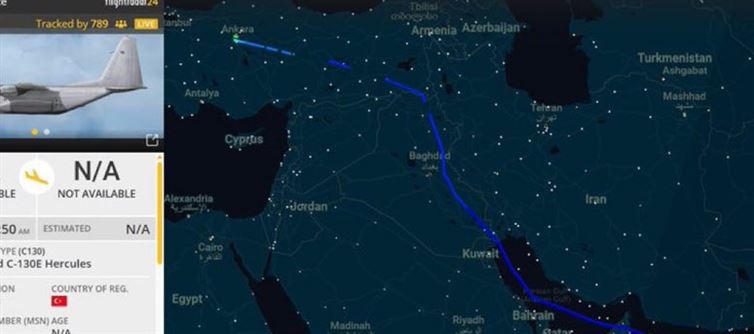
In a significant diplomatic development amidst rising tensions between india and pakistan, turkey has firmly rejected reports suggesting that it is sending arms and ammunition to Pakistan. This comes after recent concerns that military supplies might be transported to pakistan, further complicating the delicate geopolitical situation in South Asia.
The conflict between india and pakistan, which has been escalating for months, particularly over the disputed kashmir region, has attracted international attention. Both countries, nuclear-armed neighbors, have frequently clashed over territorial disputes, and the possibility of foreign involvement in the conflict is a sensitive issue on the global stage.
Turkey’s Official Statement
The Turkish government has unequivocally denied allegations that it is supplying arms to Pakistan. In an official statement, Turkish officials stated, "Turkey has not sent any military equipment, arms, or ammunition to pakistan, nor does it intend to do so in the future. Our foreign policy remains committed to maintaining peace and stability in the region, and we strongly believe in dialogue over military intervention."
The denial comes as a response to a wave of speculation fueled by reports of a cargo aircraft landing on Turkish soil. While the aircraft was initially thought to be carrying military supplies for pakistan, turkey admitted that the plane had indeed landed, but insisted that the cargo was non-military in nature.
The Controversial Cargo Flight
The aircraft, which was reportedly flying from a third-party country, landed in Istanbul’s Ataturk airport under a diplomatic arrangement. While Turkish authorities initially declined to comment on the nature of the cargo, it was later revealed that the shipment was not related to any arms or military-related equipment. According to Turkish sources, the shipment consisted mainly of humanitarian aid and non-lethal supplies aimed at addressing the basic needs of the people affected by the ongoing conflict.
Turkey’s acknowledgment of the aircraft’s arrival led to renewed questions about its role in the conflict, with many analysts suggesting that the country might be walking a fine line between supporting pakistan and maintaining a neutral stance. turkey, which has historically maintained a close relationship with pakistan, has nonetheless expressed concerns about the rising violence in the region.
A Delicate Balance in international Relations
Turkey’s actions are being closely monitored by international powers, especially given its strategic position as a member of NATO and its complex relationship with both pakistan and India. While turkey has expressed solidarity with pakistan on various occasions, particularly on the kashmir issue, it has also reiterated its commitment to a peaceful resolution of the dispute.
The international community has urged both india and pakistan to de-escalate tensions and avoid further military engagement, as the risk of a full-blown war remains a serious concern. Turkey’s stance of remaining neutral while rejecting any military involvement highlights the delicate balancing act the country faces as it seeks to preserve its relationships with both nuclear-armed nations.
Pakistan’s Response
In pakistan, officials have acknowledged Turkey’s clarification, but have also expressed disappointment over the rejection of military support. Pakistani leaders have indicated that they will continue to seek assistance from their allies and maintain their position in the ongoing conflict with India. However, Turkey’s diplomatic refusal is seen as a strategic move to avoid exacerbating the situation and to uphold its broader diplomatic interests.
Conclusion
As tensions between india and pakistan continue to simmer, Turkey’s decision to reject military support while admitting to the landing of a cargo aircraft containing non-military goods offers a glimpse into the complex nature of international diplomacy. Turkey’s careful handling of the situation underscores the delicate balance it must maintain between regional alliances and its commitment to global peace. With the situation still volatile, the role of external actors like turkey remains crucial in ensuring that the conflict does not spiral into a larger, more destructive war.




 click and follow Indiaherald WhatsApp channel
click and follow Indiaherald WhatsApp channel